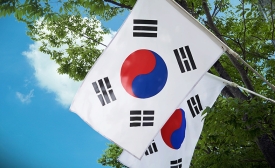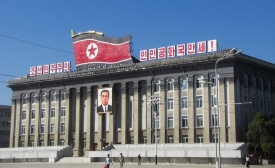north korea

The political instability of 2016 and the beginning of 2017 was a turning point for Korea’s PD.
The next effort to defuse the nuclear brinksmanship over North Korea’s missile and bomb testing may come, not from diplomats, but from a pair of North Korean figure skaters who perform to music by the Beatles. An obscure competition on Thursday and Friday here in Bavaria has gained geopolitical urgency as the pairs team of Ryom Tae-ok and Kim Ju-sik seek to become the first North Korean athletes to qualify for the 2018 Winter Olympics in February in Pyeongchang, South Korea.

CPD Fellow Vivian Walker looks at what the Peloponnesian War can teach us about today's foreign policy.

The Travelogue podcast from Condé Nast grapples with the question of whether tourism to North Korea is right or wrong.

CPD's discussion with the Republic of Korea's Ambassador for Public Diplomacy, Ms. Enna Park, focused on public diplomacy opportunities and challenges in the age of geopolitical unrest and digital disruption.
2017 has become the year when absurd jokes appear to be coming true. When Dennis Rodman made his first trip to North Korea back in 2013, it was amusing to imagine the eccentric NBA legend acting as the United States’ de facto ambassador to the country. [...] In an interview with Good Morning Britain, the five-time NBA champion offered to “straighten things out” between Trump and North Korea’s Kim Jong-un, emphasizing that he considers both men friends.
A U.S. ban on its citizens travelling to North Korea has come into effect, at a time of heightened tensions over North Korean missile launches. The new rule was announced after U.S. student Otto Warmbier died after being released from prison in North Korea. The State Department said it was necessary "due to the serious and mounting risk" of detention.
The tragic condition of U.S. foreign policy ever since the Reagan administration is that public diplomacy has consistently occupied a tertiary status in the scale of national priorities. [...] It is OK to send messages like the Tillerson-Mattis one only if we reassure the North Korean people that we haven’t abandoned them. The Tillerson-Mattis message can thus serve a psychological disarmament purpose, at least to a limited degree. But we must have a parallel track of diplomacy — with the North Korean people. We must give them hope.







